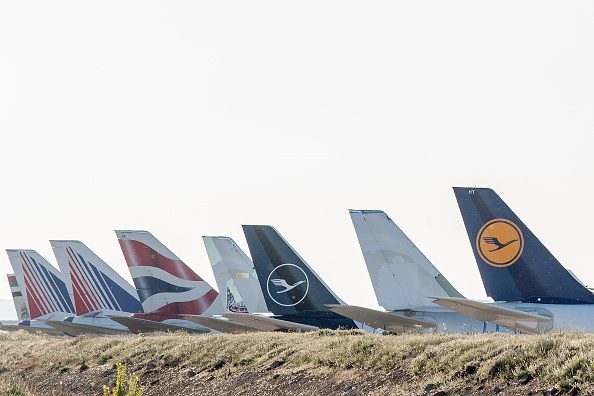
The Notebook: Victoria Scholar on Chinese New Year, air fares and edible economics

The notebook is where interesting people say interesting things. Today it’s Victoria Scholar, Head of Investment at Interactive Investor, on Chinese New Year, why air fares are on the increase and what we can learn about economics from food
As the Chinese New Year begins, investors are increasingly turning their attention back to markets in the world’s second largest economy.
The surreal coronavirus era of Zoom calls, soda bread baking and Netflix binging feels like a distant, memory to most of us. Yet Beijing’s draconian ‘zero-Covid’ policies kept China under punitive lockdowns long beyond the time when most economies reopened their borders. Finally, China has started to dismantle its isolation rules, putting an end to its strict zero-tolerance to covid approach and resuming a sense of normality.
In 2022, China’s economy was hampered by its pandemic restrictions with full-year GDP growth hitting 3%, sharply below the government’s target of around 5.5%, marking the second slowest pace of growth since 1976. However, the Covid-19 clouds are finally starting to part. Similar to the economic revivals in the UK, US and elsewhere in 2021/22, China is expected to enjoy a surge of pent-up for goods and services, driven by the excitable return to shops, restaurants, bars and airports, which would boost its economy as well as that of its trading partners. Reflecting this, is the performance of the Chinese stock market since signs that the economy was set to reopen first emerged, with the MSCI China Index rallying around 50% since November with the possibility of further gains this year.
On the other hand, some argue that a lot of the upside may have already been priced in. Plus, China has been dealing with a spike in Covid-19 infections, which will test the resolve of the authorities to stick to their loosening trajectory. China is also dealing with the problem of low vaccination rates, particularly among the elderly as well as a lack of official data available on the seriousness of its Covid-19 outbreaks. There are also conceivable headwinds from the overhang from its property crisis and the hard to predict potential for further regulatory clampdowns on technology and other sectors.
WHAT WOULD MICHAEL CAINE SAY?
50 shades of grey. The UK’s favourite car colour is grey for the fourth consecutive year. According to the Society of Motor manufacturers and Traders (SMMT), 415,199 grey cars were registered in 2022 with 25.7% of the market. Black and white came in second and third place as Britons stuck with a rather gloomy colour palette when it came to purchasing a car. Thank goodness for blue and red, which brightened up the leader board, coming up next in fourth and fifth positions.
TAKING TO THE SKIES
Air fares are taking to the skies. December’s UK inflation rate hit 10.5 per cent, the second straight drop in price growth in our economy, raising the suggestion that inflation may be past its peak. It echoes similar declines in the US and in countries across Europe. However, we are not out of the woods just yet with UK food inflation rising to 16.9 per cent, the fastest pace since records began in 1977 and plane fares soaring by 44.1%, driven mostly by the rising cost of aviation fuel.

CAN I QUOTE YOU ON THAT?
‘A great co-pilot for creatives. You can push it and it will push you.’
Musician will.i.am thinks AI tools like ChatGPT are good for business
SOMETHING TO GET YOUR TEETH INTO
Did you know that the welfare state originated from a conservative government in Germany, in an attempt to dismantle the rise of socialism? Have you ever thought about why work done by parents to care for their children isn’t capture by GDP figures? Or that ascorbic acid derives its name from the disease scurvy which is caused by vitamin C deficiency? If these questions pique your interest, this book could be for you. Edible Economics combines author Ha-Joon Chang’s passions for eating and economics. Each chapter discusses a different food (or drink) with witty personal anecdotes related to his life in South Korea and in Cambridge reading economics, and ends with an explanation of a simple to digest idea in economics.